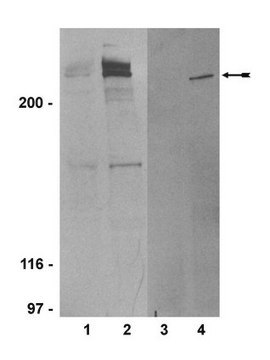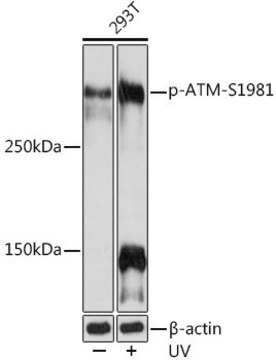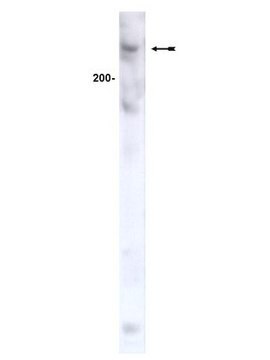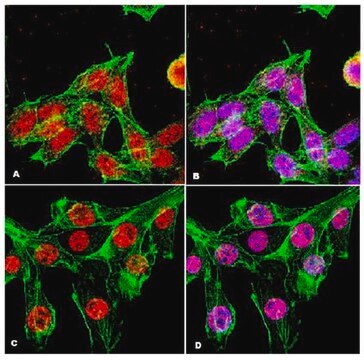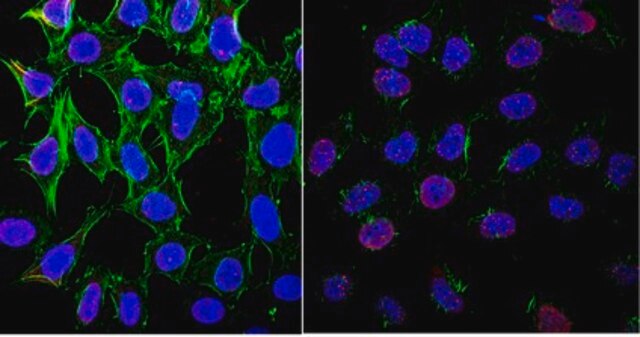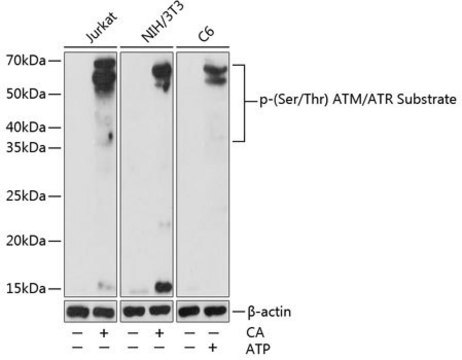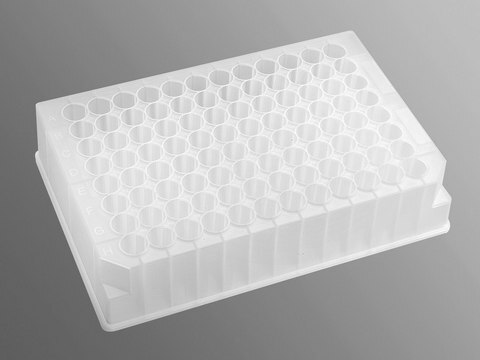A1106
Anti-ATM antibody,Mouse monoclonal
clone MAT3-4G10/8, purified from hybridoma cell culture
Synonym(e):
Anti-Ataxia-Telangiectasia Mutated
About This Item
Empfohlene Produkte
Biologische Quelle
mouse
Qualitätsniveau
Rekombinant
expressed in mouse cell line
Konjugat
unconjugated
Antikörperform
purified from hybridoma cell culture
Antikörper-Produkttyp
primary antibodies
Klon
MAT3-4G10/8, monoclonal
Form
PBS solution
Mol-Gew.
antigen ~300 kDa
Speziesreaktivität
human, mouse
Verpackung
antibody small pack of 25 μL
Konzentration
~2 mg/mL
Methode(n)
immunoprecipitation (IP): suitable
indirect ELISA: suitable
western blot: 0.1-0.2 μg/mL using HEK-293T total cel extract
Isotyp
IgG1
UniProt-Hinterlegungsnummer
Versandbedingung
dry ice
Lagertemp.
−20°C
Posttranslationale Modifikation Target
unmodified
Angaben zum Gen
human ... ATM(472)
mouse ... Atm(11920)
Allgemeine Beschreibung
Spezifität
Immunogen
Anwendung
Biochem./physiol. Wirkung
Physikalische Form
Haftungsausschluss
Not finding the right product?
Try our Produkt-Auswahlhilfe.
Empfehlung
Ähnliches Produkt
WGK
WGK 1
Flammpunkt (°F)
Not applicable
Flammpunkt (°C)
Not applicable
Analysenzertifikate (COA)
Suchen Sie nach Analysenzertifikate (COA), indem Sie die Lot-/Chargennummer des Produkts eingeben. Lot- und Chargennummern sind auf dem Produktetikett hinter den Wörtern ‘Lot’ oder ‘Batch’ (Lot oder Charge) zu finden.
Besitzen Sie dieses Produkt bereits?
In der Dokumentenbibliothek finden Sie die Dokumentation zu den Produkten, die Sie kürzlich erworben haben.
Unser Team von Wissenschaftlern verfügt über Erfahrung in allen Forschungsbereichen einschließlich Life Science, Materialwissenschaften, chemischer Synthese, Chromatographie, Analytik und vielen mehr..
Setzen Sie sich mit dem technischen Dienst in Verbindung.